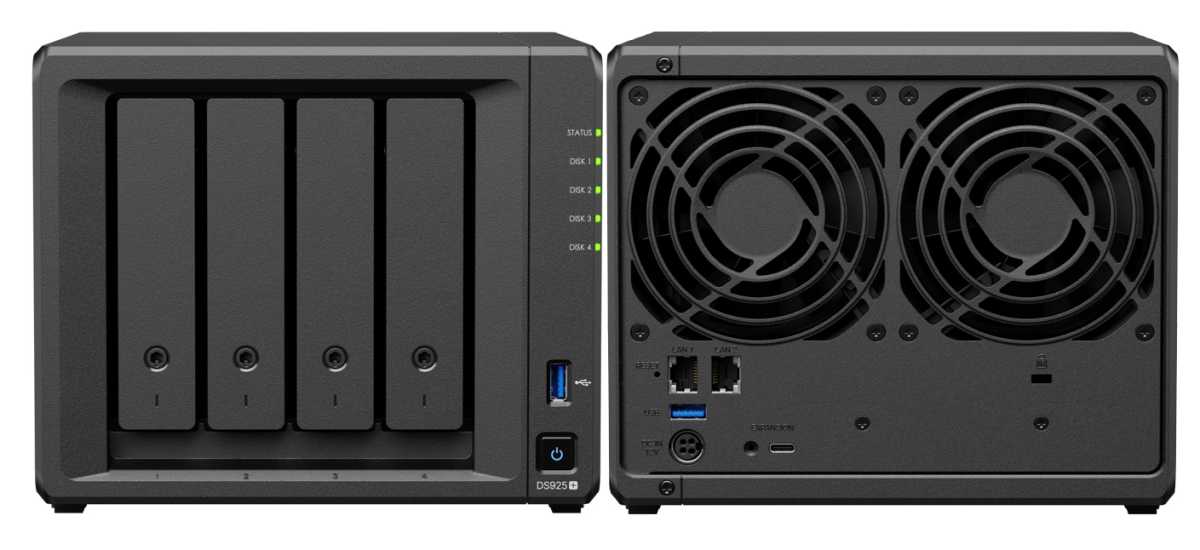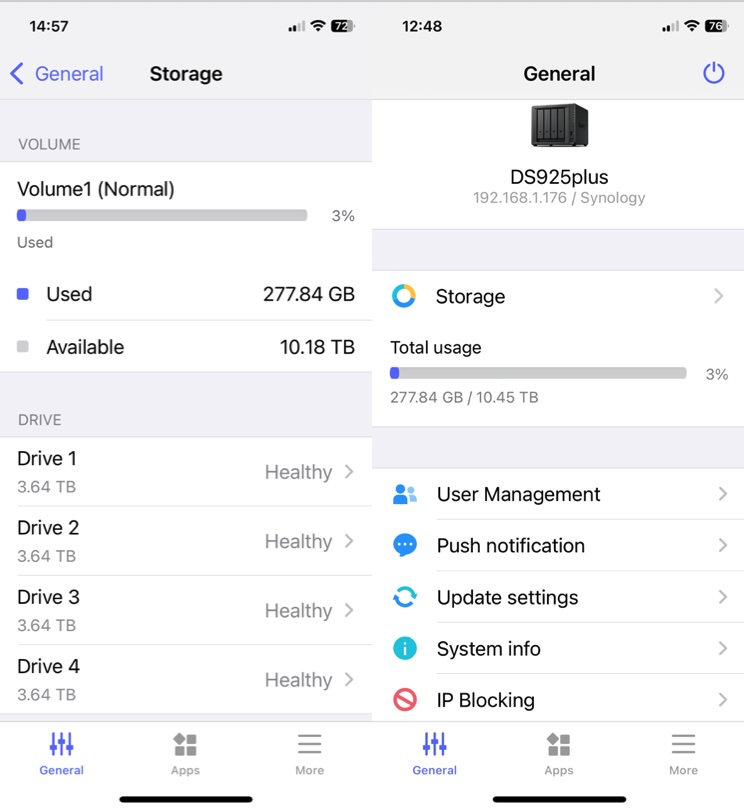Synology DiskStation DS925+ review: versatile, expandable NAS drive for small businesses and home workers

Expert’s Rating
Pros
- Compact NAS drive provides lots of storage
- Good performance
- Expandable design
Cons
- Hard drives cost extra
- Poorly designed apps
Our Verdict
The expandable storage options provided by the DS925+ make it a great option for small businesses and home offices that need a fast, reliable network drive. However, Synology’s apps and documentation could be a lot simpler and more straightforward for first-time users.
Price When Reviewed
This value will show the geolocated pricing text for product undefined
Best Pricing Today
Price When Reviewed
$640
Best Prices Today: Synology DiskStation DS925+
$639.99
Synology makes a wide range of high-end NAS systems for corporate and business users, but it’s also one of the few manufacturers that still caters to smaller businesses and people who work at home. Its latest release is the DiskStation DS925+, which provides an expandable storage system with plenty of scope to grow in the future.
At first glance, the DS925+ looks almost identical to its predecessor – called the DS923+ – with a sombre black design that provides four drive bays for hard drive or SSD storage. There are also two M.2 slots on the base of the drive that can be used to install SSD modules for a high-speed cache to boost performance. However, the older DS923+ is still sold online by a number of dealers, so make sure you buy the new DS925+ model when ordering online.
The upgraded DS925+ includes a faster quad-core AMD Ryzen V1500B processor running at 2.2GHz, along with two 2.5Gb Ethernet ports for a high-speed network connection. Synology claims that this makes it significantly faster than its predecessor, offering a maximum write speed of up to 565MB/s and read speed of 522MB/s – although, of course, this will very much depend on how your network is configured and the type of drives that you install.
Like many of Synology’s NAS drives, the DS925+ is sold ‘unpopulated’ – as just an empty chassis, with no drives included. The unpopulated drive costs £575.00/$640.00, so you’ll need to budget for additional hard drives or SSDs on top of that basic price. You also need to ensure that you select 2.5-inch SSD or 3.5-inch hard drives that have been approved as ‘compatible’ by Synology. These can be bought direct from Synology itself, or through some of its online dealers. However, you can’t buy the DS925+ itself from Synology, so you’ll need to shop around online for the best deal.
The maximum size of hard drive compatible with the DS925+ is 20TB, so its four bays provide a maximum of 80TB of storage (with a number of RAID options also supported). However, there’s an expansion module also available, called the DX525, which can be connected to the DS925+ if you want to further upgrade your storage. This costs £467.00/$449.00, and provides five additional drive bays, giving you a maximum of 180TB of storage, so the DS925+ will be able to keep up as your business grows in the future. There are also USB-A (3.2) ports on the front and back panels, which allow you to connect individual external drives if required.

But while the hardware design is neat and efficient, Synology’s software doesn’t make it easy for new users to get started. There’s a label with a QR code included in the box, but this simply takes you to some very long, complicated Help files on Synology’s website, which could easily confuse anyone that’s using a NAS drive for the first time.
There is an app, called DS Finder, that is available for iOS and Android, and this app was able to see the DS925+ when it was connected to our office network. Unfortunately, the app simply told us to use a web browser to download and install the main operating system software, called DiskStation Manager (DSM), that is needed to control the drive.
Unfortunately, the web browser option didn’t work either, and simply displayed a message telling us to download a separate desktop app for Macs or PCs, called Synology Assistant. That didn’t work at first either, although it did at least provide some tips for adjusting the encryption settings on the drive. That worked in the end, and once we’d installed the DSM software we were able to switch back to the DS Finder app on our iPad to complete the set-up process for the drive. And, as well as a local network connection, the app also includes an option called QuickConnect that provides a remote connection to the DS925+, so that you can use it as a kind of ‘private cloud’ for accessing your files when you’re away from the office.

Foundry
Unfortunately, the DS Finder app also tells you to install a number of additional apps in order to manage your files, photos and other features, so Synology really needs to rethink its documentation and its confusing selection of apps and utilities to make them a bit more user-friendly for small businesses and home workers who may not have a trained team of IT staff available to set everything up for them.
Should You Buy The DiskStation DS925+
The compact design of the DS925+ makes it a good option for any small business or office, and its expansion options ensure that it can provide additional storage in the future. However, the software side of things is rather untidy, so the DS925+ will be best suited for people who already have a little experience of networking and setting up a NAS drive.

